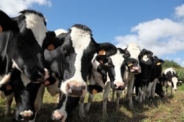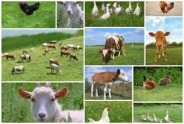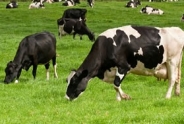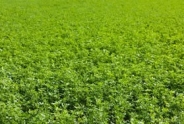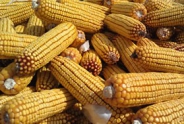Optimizing Your Harvest by Reducing Feed Shrink
Libby Eiholzer, Bilingual Dairy
Northwest New York Dairy, Livestock & Field Crops
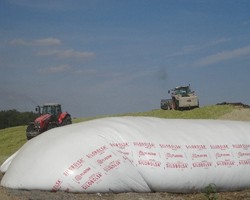
Harvest. While chopping corn or alfalfa, make sure to get every pound that you can into the truck and into the bunk. Missing a truck with the chopper spout or filling a truck so full that feed blows out during transport are both regular occurrences during corn harvest, but every pound that ends up in the field or on the roadside is a pound that doesn't end up in your cows' bellies. How can you avoid this?
- If you are hauling silage an extended distance, consider the use of a truck tarp to avoid too much loss.
- Make sure that your radios are working well so that the chopper and truck drivers can communicate.
- If you have someone driving truck that is new or out of practice, take a little extra time to let them get up to speed.
- Remind your crew at the beginning of harvest of the importance of getting as much forage as posible into the bunk.
Storage. You have the greatest opportunity to reduce future spoilage while putting up forages in the bunk.
- First, remember how dry matter impacts proper packing. Feed that is too dry may not pack well enough to eliminate oxygen, thus leading to poor fermentation. Feed that is too wet can lead to excessive moisture loss due to leaching during fermentation.
- Covering the forage properly is critical, whether it be with 6-8 mil polyethylene plastic or a combination of plastic and an oxygen barrier. Lining bunk walls can help reduce spoilage around walls and corners and overlapping plastic a good amount when more than one piece are required will also reduce spoilage.
Feed Out. Once you have a quality feed fermented in your bunk, do everything possible to feed every last pound of it.
- When you don't feed off the face fast enough, exposed feed spoils due to oxygen exposure. Remove at least 6 inches per day from the bunk face.
- Use a defacer to keep the bunk face smooth.
- Keep driveways and feeding surfaces smooth so that the loader and feed truck operators can minimize spillage.
Upcoming Events
2026 Forage Congress
March 12, 2026
Nunda, NY
Due to the unprecedented winter storm that recently impacted travel conditions across the region and U.S., combined with extreme cold temperatures and associated safety concerns, Forage Congress was postponed out of an abundance of caution. This decision was made with the safety of our participants, speakers, staff, and venue partners as the highest priority.
We are pleased to officially announce that Forage Congress has been rescheduled for Thursday, March 12, 2026, and will be held at The Nunda Ranch as originally planned.
Address: 2278-NY 436, Nunda, New York 14517
Sponsorship opportunities, vendor participation, and event registration are now open. We are excited to reconvene this important educational program and look forward to welcoming producers, industry partners, and speakers for a full day of applied, research-based forage systems programming.
From Dry to Fresh: Transition Cow Management Training
March 12, 2026
Albion, NY
This is a 1-day hands-on training in transition cow management offered in English and Spanish.
TENTATIVE- 2026 Dairy Feeder School - November 2026
November 11 - November 12, 2026
Dates are TENTATIVE for 2026! More Details to Come!
Join the Regional Dairy Specialists for a one day on-farm training for dairy farm feeders. The training will be offered in English and Spanish and will feature stations with hands-on activities and demonstrations.

